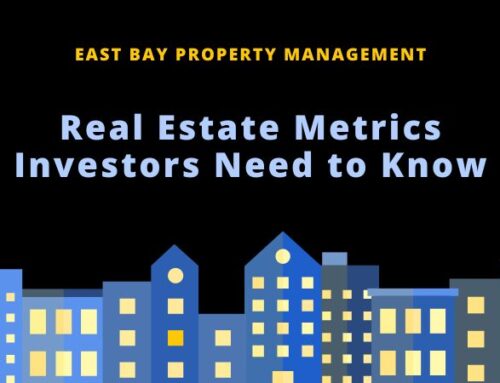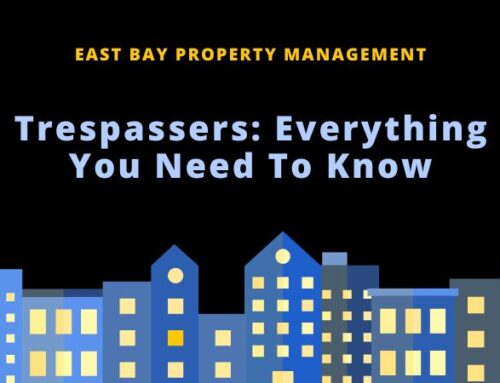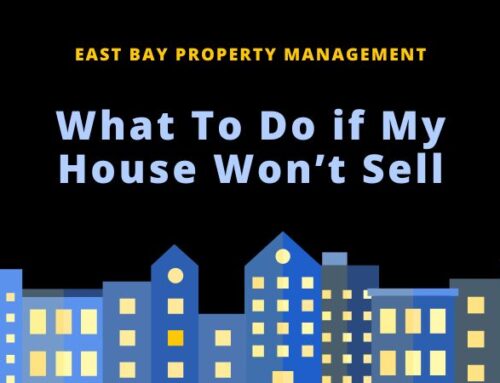You may be asking yourself what to do once you have a tenant who is ending the lease and getting ready to move out of your rental property. You don’t want to be left with a vacant unit, as you wouldn’t be receiving a passive income and would have to continue maintaining the empty property. So, should you market your rental with the current tenant still living there?
Some property owners may think that you should and while you may be determined to minimize vacancy, waiting to show a home to prospective tenants once it’s entirely vacant may actually be the better choice. You’ll want the outgoing tenant to have moved out before conducting property showings and here are three reasons why:
1. You can’t show a finished product.
You cannot truly show a final product with the outgoing tenants still living in your property. As a landlord, you only get one chance to make a first impression. When you have prospects walking through your property, it can be difficult for them to imagine the space as their own if it’s already being lived in.
 Since a current tenant has their personal property and tastes up on display, prospects may not be able to tell what they want the space to look like as their home. There is nothing more beautiful than being able to say to a prospective tenant ‘what you see is what you get’ and you can’t show that until the home is ready.
Since a current tenant has their personal property and tastes up on display, prospects may not be able to tell what they want the space to look like as their home. There is nothing more beautiful than being able to say to a prospective tenant ‘what you see is what you get’ and you can’t show that until the home is ready.
2. It creates unmet expectations.
Showing the property to prospects with current tenants can create unmet expectations. You may say to the incoming tenants that the paint is going to look a certain way and the flooring will be redone to look another way, as examples, but promises sometimes cannot be upheld. What happens oftentimes is that once the new tenants move in, they end up disappointed that expectations were not met in terms of the property’s appearance.

They may say that if they’d known it was like this, they wouldn’t have rented it, and this happens often. Having the space seem a certain way while tenants are already living there, and showing it to prospects before it’s empty, can create certain expectations. With this in mind, you want to avoid this kind of scenario and get off on the right foot with your new tenants.
3. You don’t know how the home is going to show.
You don’t quite know how the home is going to show with the tenant still living there. There could be moving boxes in the living room, cooking smells throughout the house, or general messiness. The tenant is still the rightful residence of the space and may continue to go about naturally in the time you conduct a property showing. Many tenants will choose not to leave and watch your interaction with prospective tenants.
The only exception to this point is if the outgoing tenant is meticulous. Moreover, if they are a minimalist and have very little furniture in the home. Additionally, the exception works if the tenant is willing to take a short walk or drive during an open house, usually lasting approximately 30 minutes.
Won’t this cause a longer vacancy?
Most likely. It’s going to cause a vacancy of a few more days or possibly a couple of weeks. However, the vacancy far outweighs the previously listed negatives that come with showing a property with a current tenant.

To combat the vacancy, you should advertise in advance, before the outgoing tenant moves out. With your property up for rent, you’ll get a lot of interest from people wanting to see the unit. Many will drive by the property and some will even apply for it without seeing the inside. So, when you do show the home, you have a lot of prospects to choose from. With garnered interest in the property, you can conduct thorough screenings. You’ll find the perfect tenants to move in quickly thereafter. The result is quality tenants and you generating a great credit score and passive income.
Bottom Line
Overall, there are more benefits to conducting property showings after a current tenant has moved out. It’s important that you don’t show a property until it’s 100% ready. This way, you don’t disappoint new tenants and involve current tenants in the next renting process. If there are any inquiries regarding the content of this post or anything regarding property management, contact East Bay Property Management and Consulting today and we’ll help!





